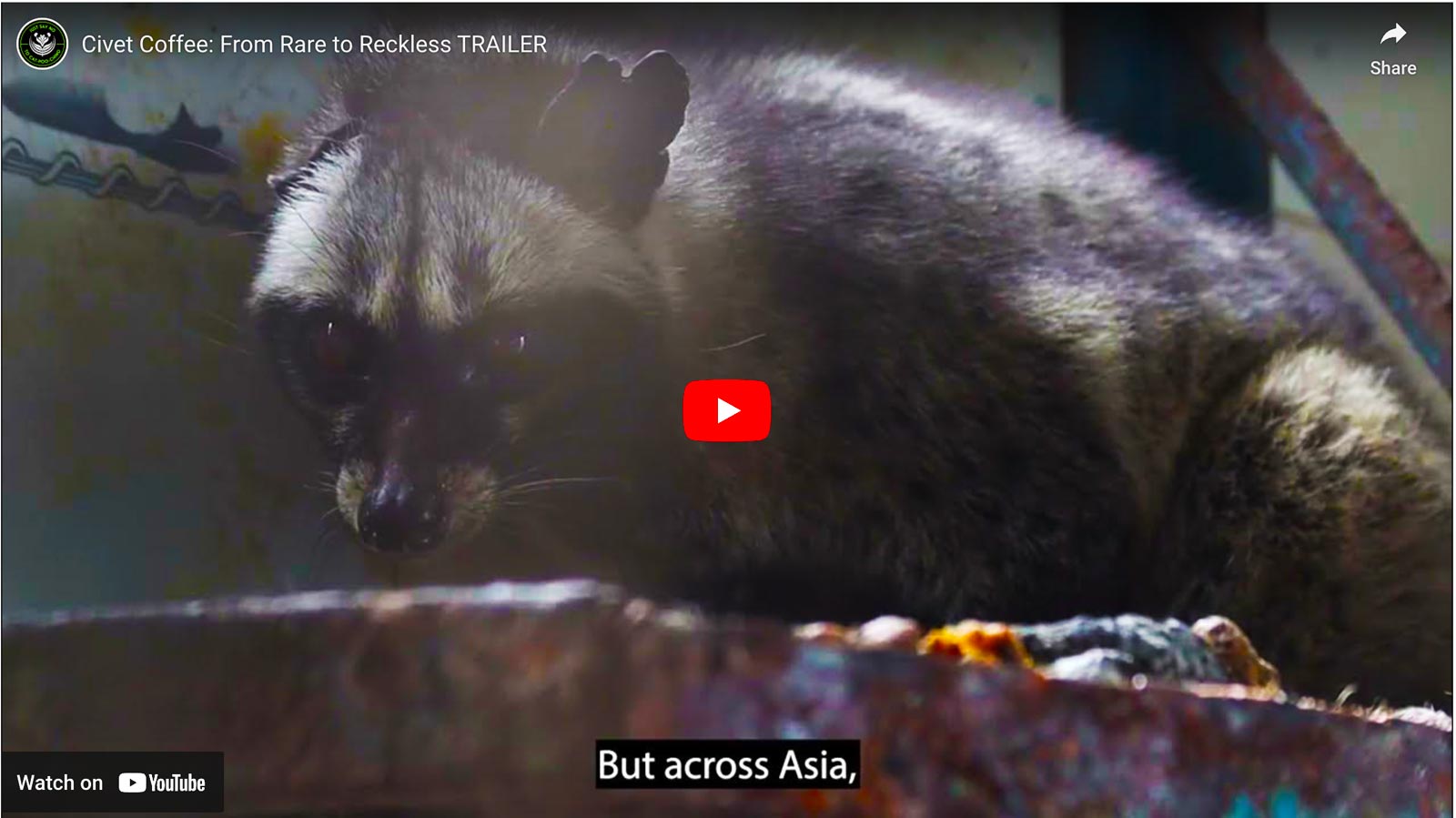Celebrating the World’s First World Civet Day: Shining a Light on the Plight of Civet Coffee Production
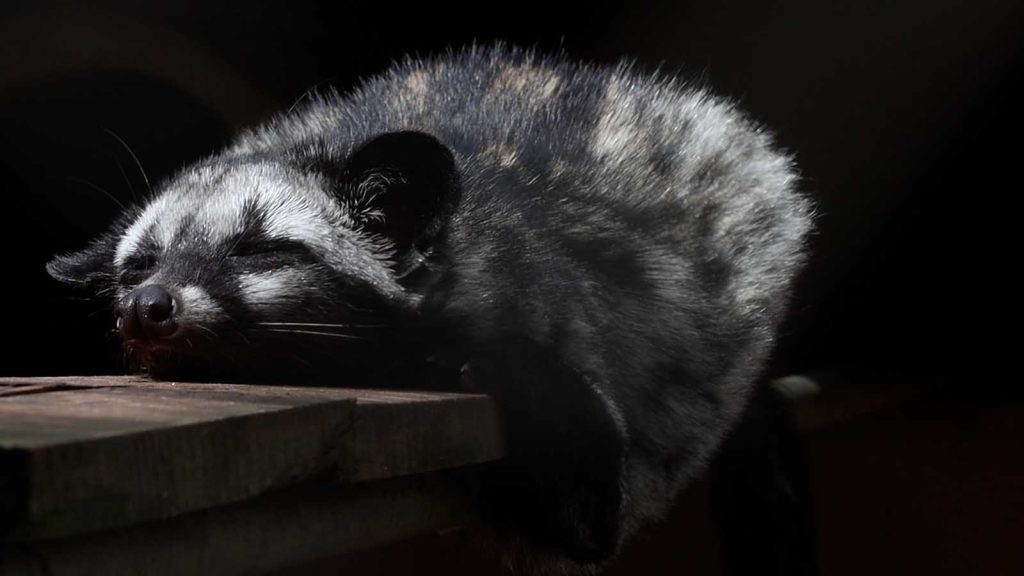
Advertisement: Click here to learn how to Generate Art From Text
The World Civet Project, in a move that has attracted the attention of animal rights activists and environmentalists such as Jane Goodall, has launched the world’s first-ever online community. Today is World Civet DayApril 4, 2024. This groundbreaking initiative is designed to raise awareness of the controversial production Civet Coffee (also known as Kopi Luwak) and its significant impact on the small, feline-like animals in Asia called Civets.
What are Civets?
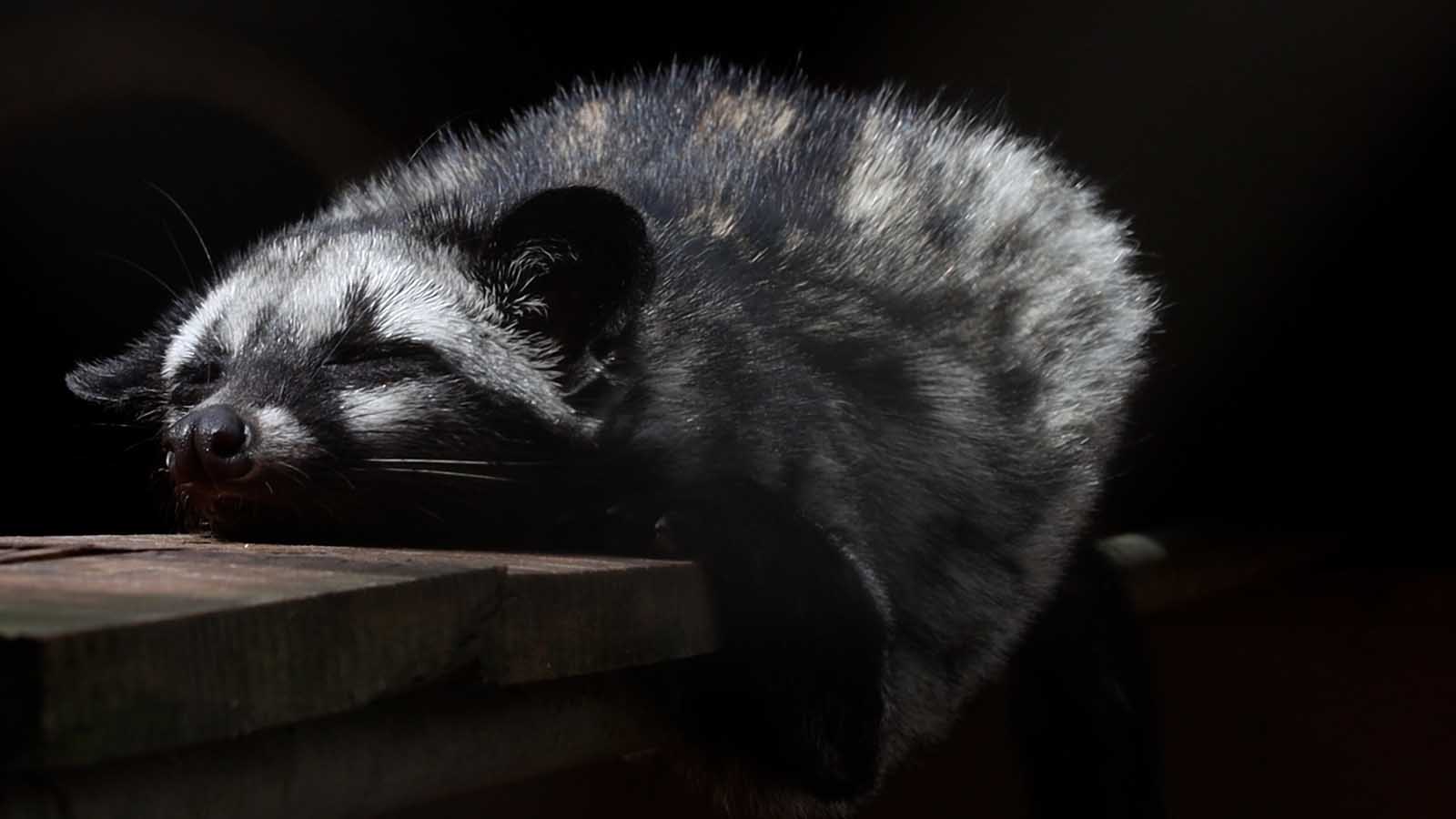
Civets can be cute, shy, and solitary. We have had the pleasure of seeing them in places like Borneo on night safaris and have seen how elusive they can be. They have beautiful, spotted hair and large ears that pop out with curiosity when they see a light.
Civets live lives that are important to their ecosystem. Their diet is omnivorous and includes fruits, berries and insects as well as small vertebrates. This makes them essential for seed dispersal, controlling insect populations and controlling insect populations.
Unfortunately, the demand for civet coffee has significantly disrupted civets’ natural behaviors and habitats. Wild civets, including snares and traps, are captured by cruel methods. Tourists can take pictures with them in cages. It is time to end this.
The Most Expensive coffee in the World Has a Price


Civet Coffee has a reputation for being the most expensive in the world. Prices can reach as high as $100 a cup in some markets. The coffee’s unique production process involves the Asian Palm Civet, a creature native to the forests of South and Southeast Asia. The Civets eat ripe coffee cherries and then, after they have passed through their digestive system the beans are collected. Enthusiasts of Kopi Luwak prize it for its supposed enhanced flavor profile, which is said to result from the natural fermentation process occurring in the Civet’s gut.
Civet Coffee: Rare to Reckless
What was once a rare, natural process has become a lucrative industry that exploits Civets. Investigations have revealed that Civet farms use inhumane practices. They keep the animals in cramped cages with poor sanitation and force them to eat coffee cherries as their only diet. This unnatural confinement led to not only inhumane treatment but also significant health issues for the Civets. These included malnutrition, anxiety, and a dramatically reduced lifespan.
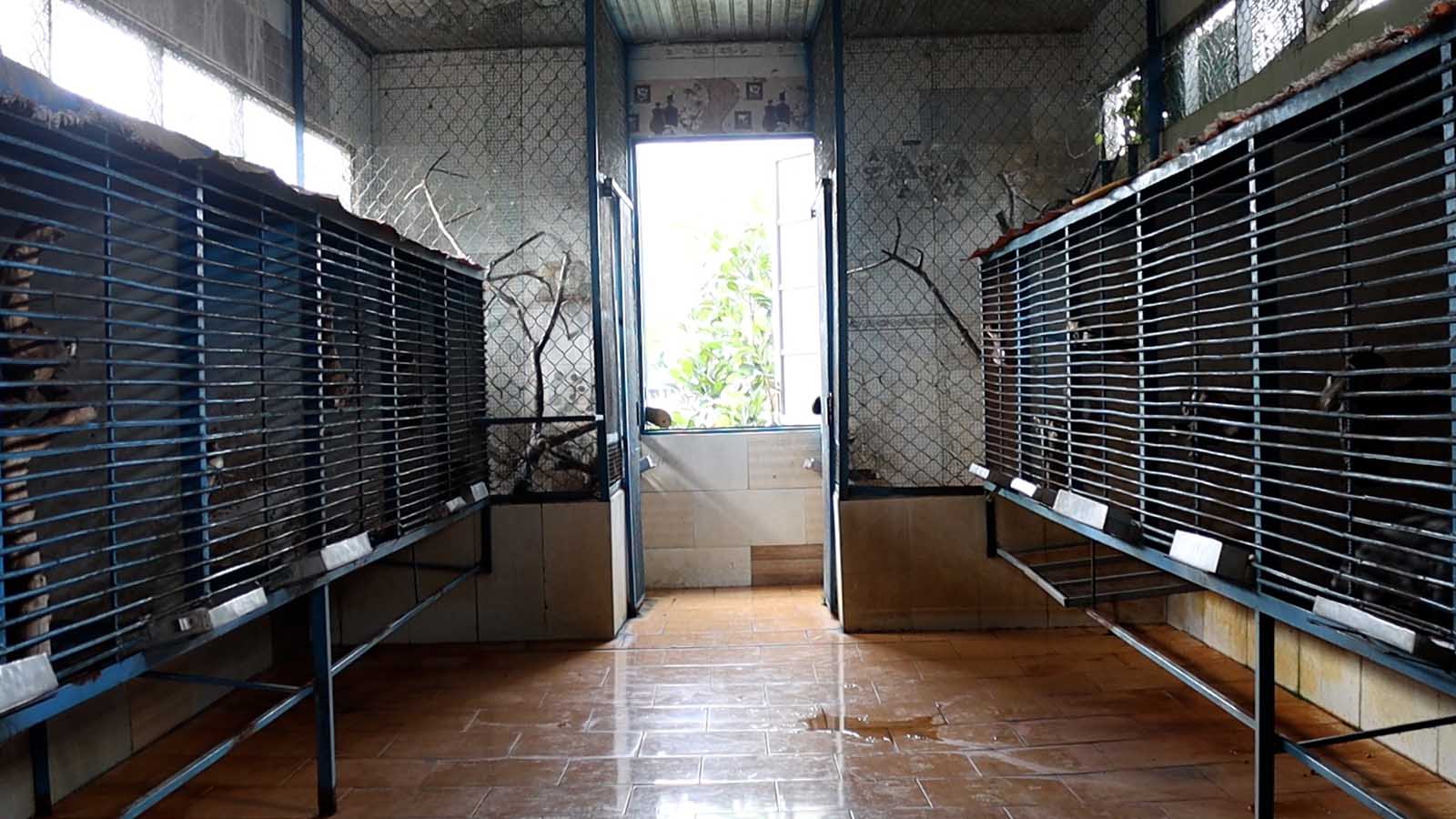

Sadly, tourists support Civet Coffee production while not knowing what is happening. It doesn’t help that TripAdvisor has attractions that encourage visitors to visit Civet Farms. Jess Hooper of the Civet Project has started a campaign to encourage TripAdvisor’s animal welfare warnings to be placed on all Civet Coffee Attractions. Sign the petition here. They do not follow their own animal welfare policy. We must stop Civet Coffee production, just as we worked together to end elephant riding and swimming with dolphins.
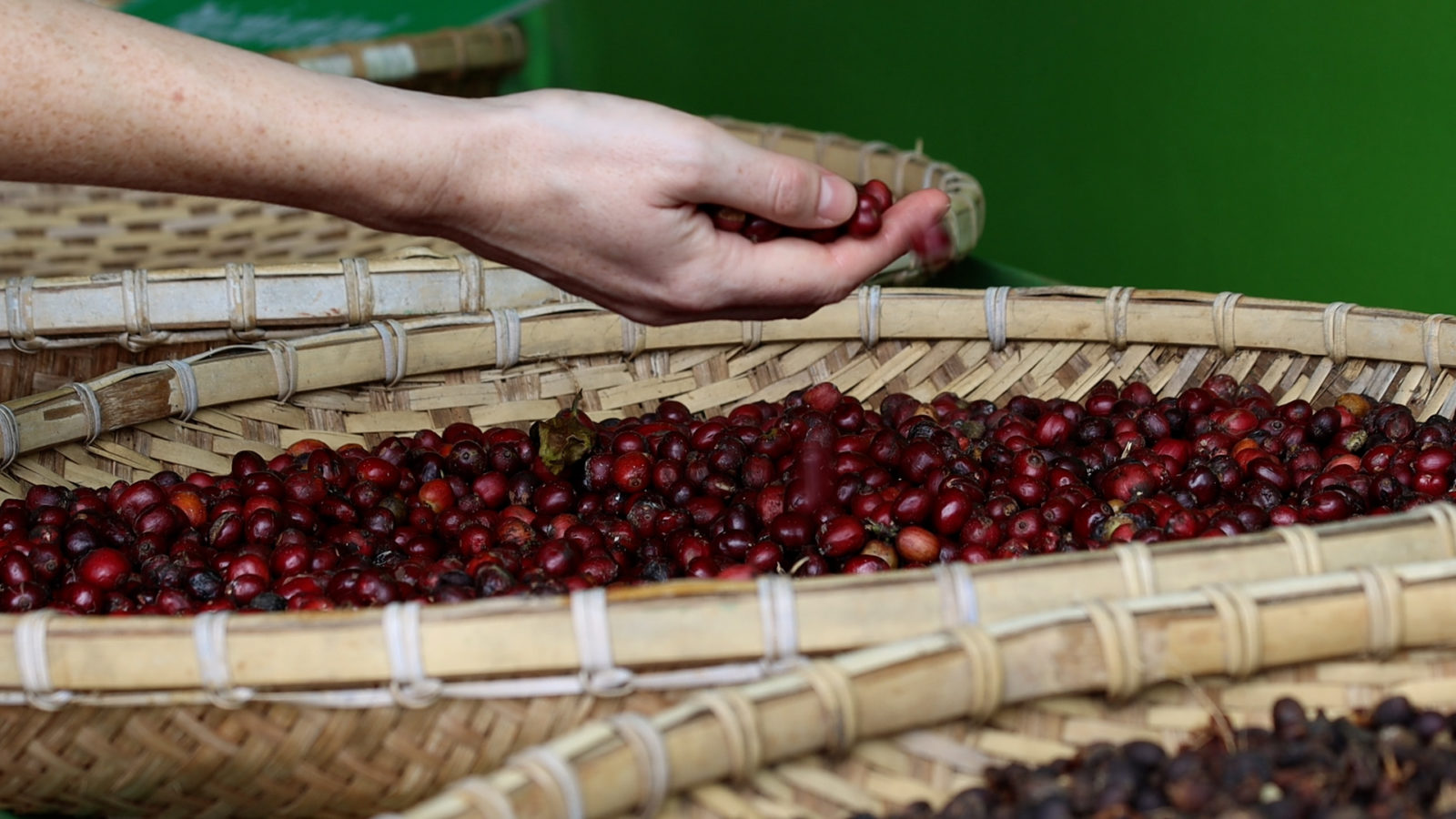

World Civet Day is an attempt to bring these topics to the forefront of the public consciousness. The day is both a call for action to conserve Civets and the natural habitats they inhabit, as well as a plea for ethical consumption. World Civet Day organizers advocate for the end of the use caged Civets to produce coffee and encourage consumers and the coffee industry to support sustainable and ethical practices.
World Civet Day
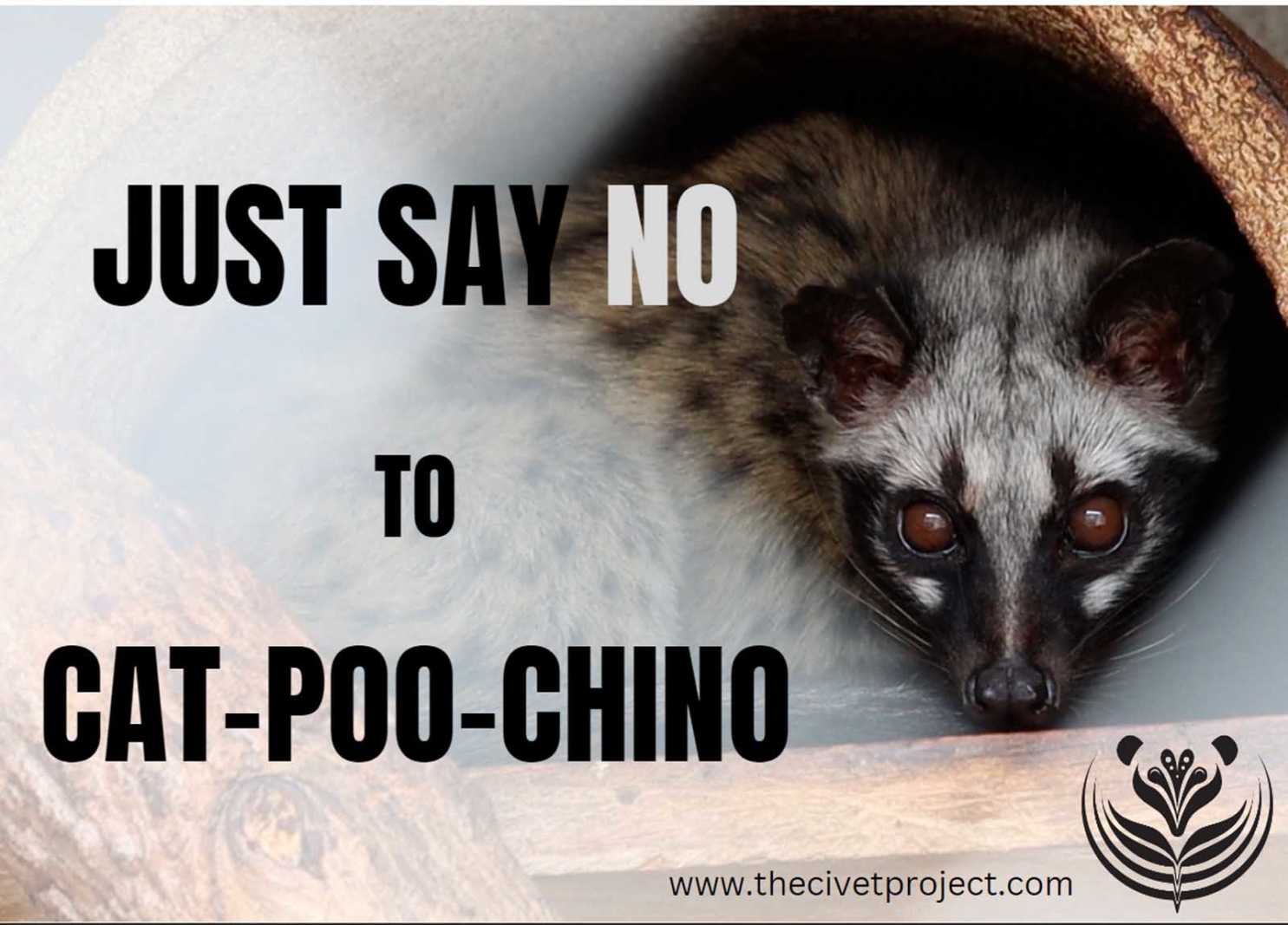

The introduction of World Civet Day is a crucial step in addressing animal abuse and promoting sustainable practices in the coffee industry. It reminds consumers of the impact their choices can have on wildlife and environment.
Do we need to drink cat pooh coffee? Instead, let’s encourage the ultra rich to choose ethically sourced coffee to ensure that the luxury of enjoying a cup of coffee does not come at the expense of animal welfare.
As the world comes together to observe the inaugural World Civet Day, the message is clear: it’s time to rethink our relationship with coffee and the creatures that help produce it. Through education, awareness and action, we are able to end the abuse of Civets, and pave way for a more sustainable and ethical coffee industry.
World Civet Day will be launched for the first time in 2024 on April 4th. It will raise awareness about civet species. Visit the Civet Project’s website for more details. You can also find these on Facebook, Instagram, LinkedIn.
Here are some more sustainable travel tips.

‘ Credit:
Original content by theplanetd.com – “Celebrating the World’s First World Civet Day: Shining a Light on the Plight of Civet Coffee Production”
Read the full article here https://theplanetd.com/world-civet-day/
